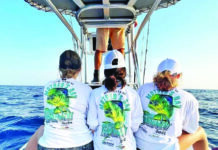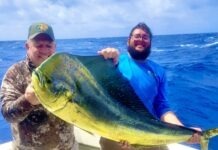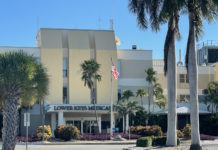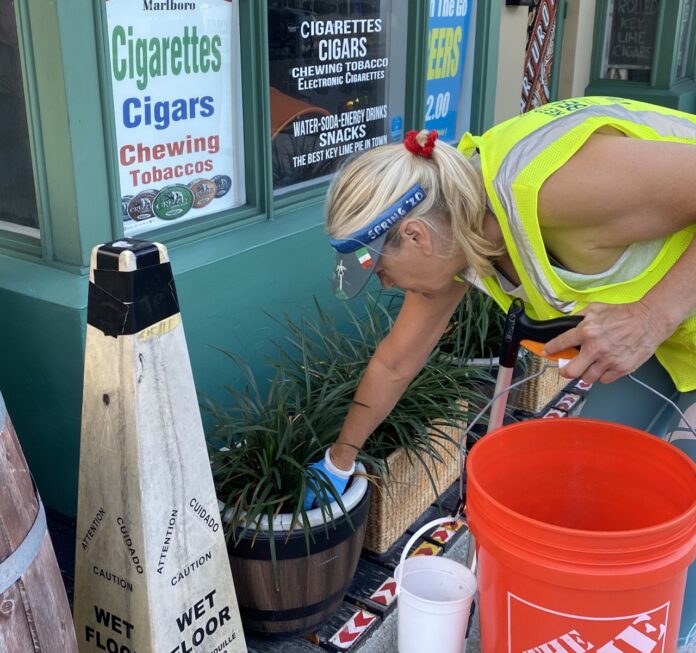
Question: What’s (by far) the largest source of plastic litter found on Key West’s beaches and streets? If you answered bottles, grocery bags or straws, you’d be wrong.
Truth is, the thousands of pounds of tossed cigarette butts collected each year by city volunteers who affectionately dub themselves “Ploggers” hold a secret: The filters in these smoking materials, specifically in commercial brands like Newports, Marlboros and others, are lined with “micro-polymers;” also known as cellulose acetate.
The oft-discarded gunk tossed by pedestrians on walkways and in waterways is better known by most folks as plain old plastic.
“People are inhaling this stuff,” Kimmie Hellman exclaimed during one of the volunteer cleanups that takes place every Friday morning from 8 to 9 a.m. in a particular island neighborhood. This cleanup happened to be on the north end of Simonton Street.
Hellman is one of dozens of people who collect tossed butts and other debris across the island every week. When asked why she takes the time to do the work, she gave a simple explanation. ”I want to help my community,” said the Plogger.
The effort pulls in visitors, too, like Alison Blenkinsopp, a part-time resident of Key West.
“I do the same thing at home,” she said of her other community in England. “But this is far more organized. I want to help keep this place beautiful and special.”
Dorian Patton, the city of Key West’s special projects manager who helms the program, said the environmental consequences of this careless habit are undeniable. Patton wants smokers to understand the impact that discarding the stubs has on the local ecology. “The cigarette butts wash into the drains here and then eventually make their way to the ocean,” Patton said. “Then the turtles and fish end up eating all those chemicals and tiny plastic pieces.”

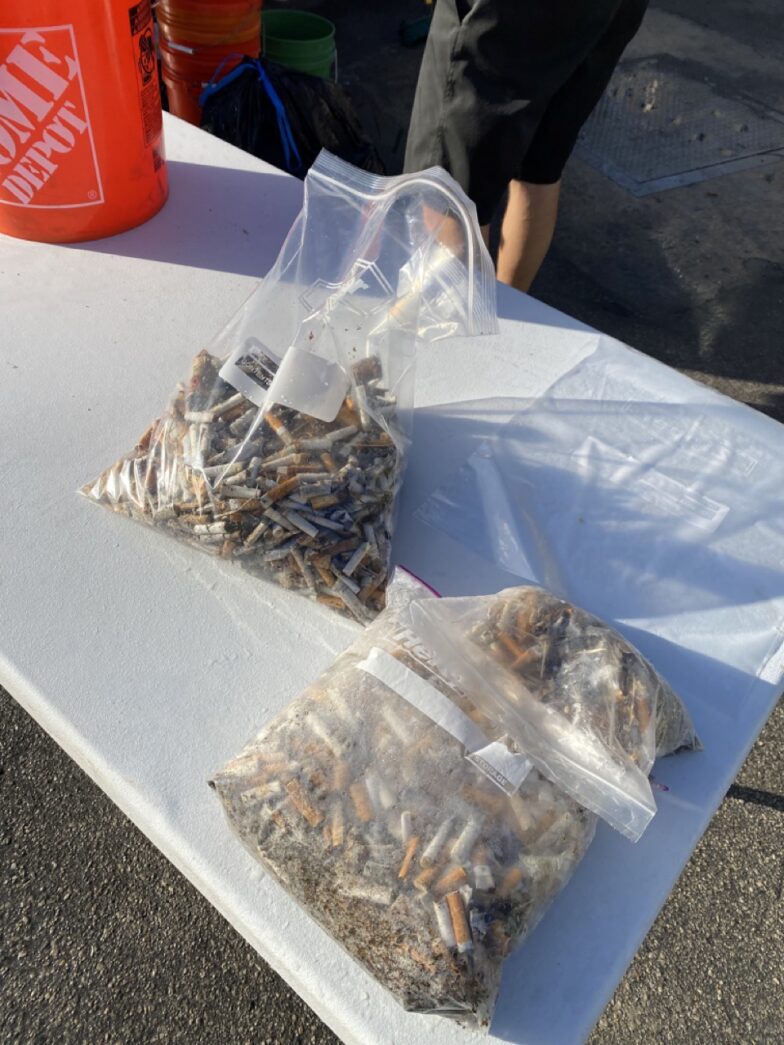
According to a report last year by National Geographic, the trash problem is a global one. A staggering 18 billion smokes are consumed worldwide every day. That means trillions per year — only a third of the butts make it into the trash — are left to linger on city streets and in waterways, where toxic chemicals like nicotine, arsenic and heavy metals seep out and pollute.
Patton said the quantity of material picked up around the island may startle some.
“Last week we collected about seven gallons of cigarette butts. That’s roughly 4,000 per gallon.” The good news is that the city actually sends the collected waste with other non-biodegradable debris like condiment packages to TerraCycle, an innovative company in New Jersey that helps remediate the world’s “throwaway culture” by receiving and processing everything from lipstick containers to baby food pouches.
But if you think the message from the Ploggers is for people to quit nicotine altogether, it’s not.
“We’re not lecturing people to stop smoking,” insisted Hellman. “We’re just asking those who do to please dispose of the butts in a responsible way.” She added, “You can make a difference just by doing that. Please consider the serious environmental consequences before flicking your used cigarette or cigar onto the ground here or anywhere.”
Patton said the cleanup team is always welcoming new volunteers. Bottled water and all equipment including vests are provided. To join the Ploggers and find them every Friday morning, check out the city’s schedule on Facebook: City of Key West – Government and each week in the Key West Weekly newspaper.






